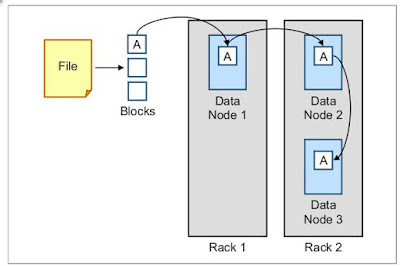Agentic AI and Cloud Computing: A New Era for Big Data
Introduction
The rise of big data has challenged organizations to manage, process, and analyze massive datasets in real time. While cloud computing revolutionized data storage and accessibility, it is Agentic AI—autonomous, decision-making artificial intelligence—that brings intelligence, adaptability, and automation to the cloud. Together, these technologies mark the beginning of a new era where big data is not only stored but actively understood, optimized, and acted upon.
The Symbiosis of Agentic AI and Cloud Computing
Cloud computing provides the scalable infrastructure necessary to handle big data, while Agentic AI layers on the intelligence required to interpret and respond to that data. Agentic AI operates as autonomous agents capable of making decisions, learning from new inputs, and adapting strategies. The cloud enables these agents to run efficiently by offering elastic resources, distributed storage, and networked computing power.
This synergy allows businesses to:
-
Automate repetitive data management tasks.
-
Scale analytics seamlessly across distributed systems.
-
Deploy AI-driven solutions globally without heavy infrastructure costs.
Advantages of Agentic AI in the Cloud
1. Scalability with Intelligence
Traditional AI systems often struggle with scaling due to hardware limitations. Cloud environments remove these constraints, allowing Agentic AI to scale decision-making across vast data ecosystems.
2. Real-Time Data Processing
By leveraging cloud-native tools such as serverless computing and stream processing, Agentic AI can interpret and act upon streaming data—crucial for industries like finance, logistics, and healthcare.
3. Cost Optimization
Cloud platforms provide pay-as-you-go models. When paired with Agentic AI, organizations can dynamically allocate resources, predicting workloads and minimizing waste.
4. Enhanced Security and Compliance
Agentic AI can monitor cloud environments for anomalies, automatically enforce compliance protocols, and adapt security measures in real time.
5. Global Collaboration and Accessibility
AI agents in the cloud allow teams across geographies to access unified insights, driving faster innovation and democratized decision-making.
Use Cases Across Industries
-
Healthcare: Cloud-based Agentic AI analyzes patient records, genomic data, and IoT device inputs to recommend treatments in real time.
-
Finance: Autonomous AI agents detect fraudulent activity and optimize trading strategies with cloud-hosted analytics.
-
Retail: Intelligent personalization engines in the cloud enhance customer experiences with tailored recommendations.
-
Manufacturing: Predictive maintenance powered by Agentic AI reduces downtime by analyzing sensor data at scale.
-
Smart Cities: Traffic, energy, and public safety data is processed by Agentic AI agents on cloud platforms, enabling adaptive city management.
Challenges and Considerations
While promising, integrating Agentic AI with cloud systems comes with challenges:
-
Data Privacy: Sensitive information must be secured while still enabling AI to learn.
-
Latency Issues: Real-time applications may require edge computing to complement the cloud.
-
Governance: Autonomous agents must be regulated to avoid biased or unethical decision-making.
-
Vendor Lock-In: Dependence on a single cloud provider may restrict flexibility.
Future Outlook
The convergence of Agentic AI and cloud computing signals a paradigm shift in big data analytics. Future advancements will likely include:
-
Hybrid AI-Cloud Architectures integrating edge computing.
-
Self-healing Cloud Systems where Agentic AI autonomously fixes failures.
-
Federated Data Ecosystems enabling secure, cross-industry data collaboration.
-
Ethical AI Governance Frameworks to guide autonomous decision-making in the cloud.
Conclusion
Agentic AI and cloud computing together redefine how organizations approach big data. No longer limited to passive storage and delayed analysis, data can now be acted upon in real time by autonomous systems. This new era promises not just faster insights but smarter, adaptive, and more cost-efficient decision-making across industries.




Comments
Post a Comment